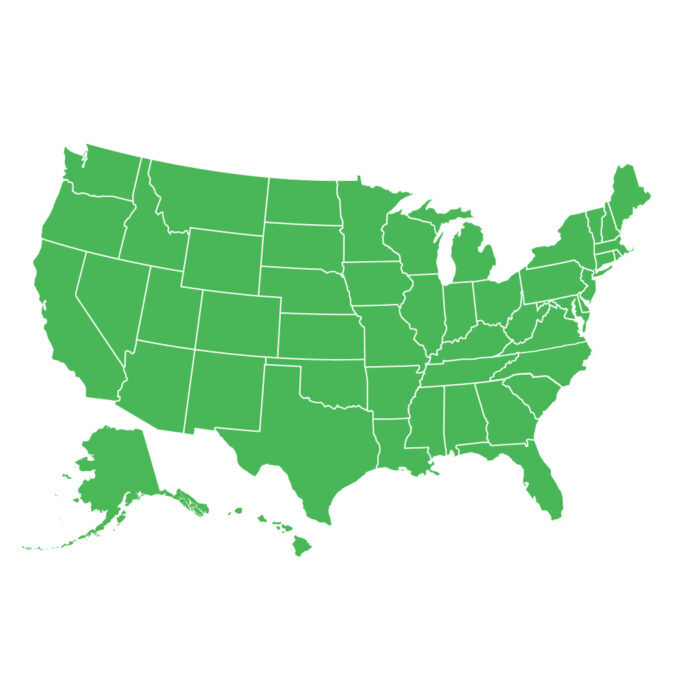Manufacturing sales tax exemptions by state: What you need to know
by March 12, 2025
Running a manufacturing business involves complex tax obligations, particularly when navigating sales tax exemptions. These exemptions are often available on purchases like raw materials, machinery, or equipment used directly in manufacturing. However, the rules and qualifications for these exemptions vary by state, making it crucial to understand the specific regulations in your area.
By clarifying these exemptions, you can reduce your overall tax liability, improve cash flow, and ensure your business fully complies with state and local tax laws. Proper management of these obligations saves money and helps avoid potential penalties or audits.
Key definitions and concepts
Before getting into the specifics of sales tax exemptions, let’s walk through some key terms and concepts that are important to know.
Understanding sales tax
Sales tax is an indirect tax applied to most purchases of tangible personal property and certain services. Understanding sales tax obligations is essential for manufacturers, mainly when operating across multiple states, each with its own rules and requirements. Navigating these differences can be challenging, but understanding your responsibilities will help ensure compliance and avoid potential issues.
A solution like TaxJar can help simplify sales tax management by automating calculations, tracking state-specific regulations, and ensuring timely filings. By leveraging TaxJar, manufacturers can reduce the risk of errors and stay compliant with ever-changing tax laws.
Definition of manufacturing
Manufacturing typically involves transforming raw materials, components, or parts into finished goods that meet customer specifications. This process can include various activities from assembly to processing and fabrication. Your sales tax obligations may vary depending on whether you sell finished products, purchase raw materials, or provide manufacturing services.
Importance of sales tax exemptions
Sales tax exemptions can significantly impact your manufacturing operation’s bottom line. These exemptions often apply to purchases of machinery, equipment, and raw materials used directly in manufacturing.
Please note: While TaxJar helps businesses calculate and file sales tax returns, our system does not support manufacturing sales tax exemptions. However, TaxJar is a great tool for manufacturing businesses looking to simplify sales tax compliance. It automates tax calculations, keeps up with state-specific rules, and ensures filings are on time. For overall sales tax compliance, TaxJar offers reliable automation and accuracy.
Types of sales tax exemptions
Sales tax exemptions vary widely by state but generally fall into several key categories that manufacturers should know.
Machinery and equipment exemptions
Many states offer exemptions for machinery and equipment used directly in manufacturing. While the manufacturing process covers the direct production tasks, it also typically covers pre-production tasks such as R&D, materials handling, and storage of raw materials, and post production tasks such as quality control and packaging. This means that machinery and equipment used in these pre- and post-production steps can also qualify for manufacturing exemptions.
For example, the Arizona manufacturing sales tax exemption covers machinery or equipment used directly in manufacturing, processing, or fabrication operations.
Raw materials exemptions
Raw materials that become part of the finished product are often exempt from sales tax. The California manufacturing sales tax exemption form allows manufacturers to purchase raw materials tax-free when they become parts of products for retail sale.
Pollution control equipment exemptions
Environmental protection equipment required by law or regulation may qualify for sales tax exemptions. The Pennsylvania manufacturing sales tax exemption form includes provisions for pollution control equipment used in manufacturing operations.
Agricultural exemptions
Agricultural manufacturing often has specific exemptions. The North Carolina manufacturing sales tax exemption includes special provisions for agricultural equipment and supplies used in farming operations.
Qualifications for claiming exemptions
To qualify for manufacturing sales tax exemptions, businesses must meet specific criteria outlined by state regulations.
General criteria for manufacturers
To qualify for manufacturing exemptions, you typically must:
- Be primarily engaged in manufacturing operations
- Use the exempt items directly in the manufacturing process
- Maintain proper documentation of exempt purchases
- Register with appropriate state tax authorities
Specific requirements for agricultural businesses
Agricultural manufacturers must often meet additional criteria, such as:
- Deriving a certain percentage of income from farming operations
- Using equipment primarily for agricultural purposes
- Meeting specific state-defined farming activity requirements
Types of manufacturing operations and their exemptions
Different manufacturing operations may qualify for various exemptions. The Colorado manufacturing sales tax exemption varies based on the type of manufacturing activity, from food processing to industrial production.
State-specific breakdown
Here are a few examples of sales tax exemptions in certain states:
- Texas manufacturing sales tax exemptions apply to specific machinery and equipment purchases for manufacturing and qualifying natural gas products used in production.
- New York manufacturing sales tax exemptions apply to manufacturing facilities that purchase energy sources or renewable fuels. It also applies to specific machinery, equipment, and parts used in production.
- Oregon manufacturing sales tax exemption: Oregon has no general sales tax, so traditional manufacturing sales tax exemptions do not apply. However, manufacturers may qualify for other tax incentives, such as property tax exemptions, income tax credits, and enterprise zone benefits.
- Florida offers specific exemptions for new businesses and expanding manufacturers, including exemptions for industrial machinery and equipment, research and development equipment exemptions, and special provisions for manufacturers in rural areas.
- Alabama’s manufacturing sales tax rate includes special provisions for automotive manufacturers and suppliers. Similarly, toll manufacturing sales tax treatment varies by state, with some states treating it as a service and others as a sale of tangible personal property.
Procedures for claiming sales tax exemptions
Manufacturers seeking to take advantage of sales tax exemptions must follow specific procedures to ensure compliance with state regulations.
Registration requirements
Before claiming exemptions, you must:
- Register with state tax authorities and obtain necessary permits or licenses
- Maintain current registration status
- Update registration information as needed
Documentation needed
Proper documentation typically includes:
- Exemption certificates
- Purchase records
- Manufacturing process documentation
- Proof of qualified use
Common application processes
Most states require you to:
- Complete specific exemption forms
- Provide business information
- Document intended use of purchases
- Maintain records for audit purposes
Incentives related to tax exemptions
Tax exemptions for manufacturers reduce operating costs and encourage business growth and investment. These incentives can vary widely by state, offering opportunities tailored to the needs of different industries.
Overview of Rural Job Tax Credit in Florida
Florida offers additional incentives for manufacturers in rural areas, including job creation credits and special exemptions for new equipment purchases.
Other relevant tax incentives for manufacturers
While many states offer various tax incentives for manufacturers, TaxJar’s system focuses specifically on sales tax calculations and filing. We cannot support other tax incentives or credits within our platform.
Manufacturing tax benefits for growth and innovation
Understanding manufacturing sales tax exemptions is crucial for managing your tax obligations effectively. While TaxJar can help you calculate and file your sales tax returns, we recommend consulting with a tax professional for specific guidance on claiming manufacturing exemptions in your state. Ready tostreamline your business’ sales tax compliance?Start a free trial with TaxJar today.








